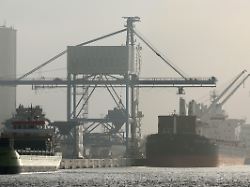Purchasing manager indices plummet
“The recession signals could hardly be clearer”
08/23/2023 4:06 p.m
Hardly anyone expected that: the economic indicators in Germany and the euro zone are signaling pronounced weakness. There is no growth in either industry or service providers. Several analysts now expect that the ECB will initially refrain from raising interest rates further.
The German economy accelerated its downturn in August and appears to be headed for a recession. The purchasing managers’ index for the entire private sector – i.e. industry and service providers – fell from 48.5 to 44.7 points in August, according to the financial services provider S&P Global in its monthly survey of around 800 companies. It was the fourth decline in a row and also the lowest value since May 2020, when the corona pandemic kept the economy on the ground. Economists had only expected a drop to 48.3 points.
With the strong decline, the growth threshold of 50 points is now well away. The service sector in particular was decisive for the rapid decline. The service industry barometer fell below the growth threshold – from 52.3 to 47.3 points. And at 39.1 points, industry is even more clearly below this mark, even if things went up a bit in August.
“Hope that the service providers could save the German economy has evaporated. Instead, the service sector is about to join the recession in the manufacturing sector, which seems to have started in the second quarter,” said Cyrus de la Rubia, chief economist Hamburg Commercial Bank (HCOB), which sponsors the survey.
Significant for the malaise is the international competitive position of mechanical engineering, which for a long time was the model branch of the European export champion Germany. According to an IFO survey, the situation for machine builders has deteriorated in the competition for market share. “In sales markets outside the EU, competition from China in particular has increased for German mechanical engineering,” said IFO expert Nicolas Bunde. The survey score for competitive position fell to its lowest level since the survey began in July 1994.
Coba: ECB will have to lower growth forecast
The economy in the euro zone is also going downhill. The weakening service providers are increasingly slowing down the economy. The purchasing managers’ index for the private sector also fell surprisingly significantly – by 1.6 to 47.0 points. The barometer for the service sector fell by 2.6 to 48.3 points. Things are even worse in industry. “The signs of recession could hardly be clearer,” says chief economist Thomas Gitzel from VP Bank.
The European Central Bank (ECB) should also think about the severely clouded economic prospects. After a series of interest rate hikes, it left open whether it would tighten the monetary policy reins again in September and thus continue to weigh on the economy. ECB Director Fabio Panetta has already expressed skepticism about further tightening. He belongs to the dove camp on the ECB Governing Council, who favor a relatively dovish stance and want to keep interest rates low to encourage economic growth.
According to Commerzbank chief economist Jörg Krämer, their position in the Governing Council should now be stronger, as he believes that everything now points to a contraction of the euro economy in the second half of the year: “The ECB will have to significantly lower its optimistic growth forecast ECB will not raise interest rates further in September.” In their projections in June, the experts at the ECB had estimated growth in gross domestic product of 0.9 percent for 2023 and an increase of 1.5 percent for 2024.
The major US bank JP Morgan also expects the ECB to pause interest rates in September. In the current tightening cycle, a final interest rate hike of 0.25 percentage points is to be expected in October, it said.
